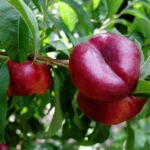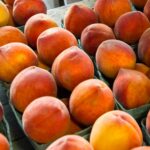South Australia takes pre-emptive action to ensure fruit fly-free status

The South Australian goverment aims to prevent fruit flies from entering the state through the help of a new research and development facility in the Upper Spencer Gulf. 
Construction of the AUD$3 million (US$2.78 million) facility is expected to take two years, with the research team starting work in 2014-15 to develop male-only sterile Queensland fruit flies that will be used to eradicate the pest interstate.
Premier Jay Weatherill said sterile insects had been used with success around the world but this move under the Premium Food and Wine policy would be a first for Queensland fruit flies, transforming management of the pest at home and further afield.
"Because fruit fly has taken hold so firmly interstate, the threat of South Australia losing its fruit fly free status is becoming greater," Weatherill said.
"Being fruit fly-free is a huge selling point for our premium food and wine producers, which is why we are going to invest in keeping the pest out of our State.
"Each year the State Government spends about $5 million keeping fruit fly out of South Australia. This year's State Budget provided an extra $1 million for fruit fly measures, which will be directed towards the establishment of the facility."
Agriculture, Food and Fisheries Minister Gail Gago said sterile insect technology could be used for both prevention and eradication.
"Sterile flies can eradicate remnant fruit fly populations once spraying has been completed and they can also prevent wild flies from establishing in the area where they are released," Gago said.
She highlighted the new facility would also assist in reducing reliance on agrichemicals.
"It's very important that we reduce the environmental risks from using chemicals and also seek to reduce their use to suit our many international trading partners.
"The technology is environmentally friendly and can be used in orchards, urban and environmentally-sensitive areas, where conventional chemical treatment isn't possible or is intrusive.
"There is also no risk of resistance if repeatedly used, and rapid treatment of large areas can be achieved."
The State Government will own the facility, while national research and development collaboration will be managed principally through Horticulture Australia Ltd, with $15 million to be invested by the partners - HAL, the CSIRO Biosecurity Flagship and Plant & Food Research Australia in research over five years.
Photo: Wikimedia Commons, James Niland













































